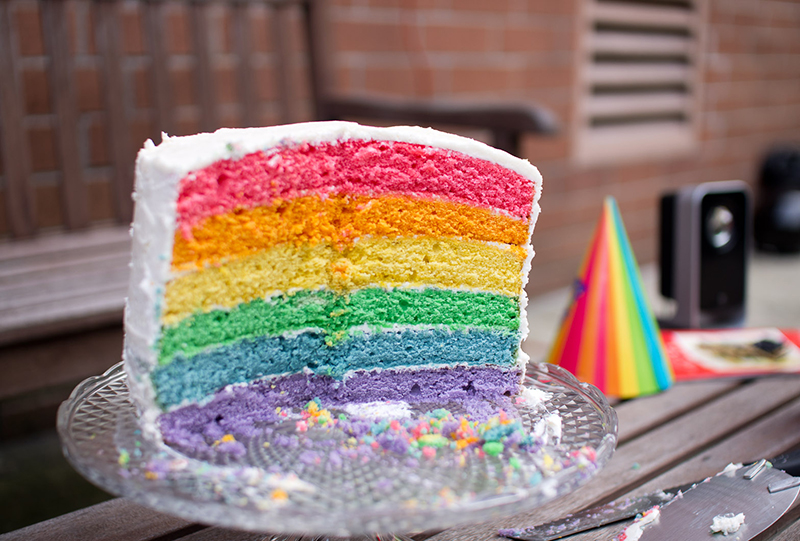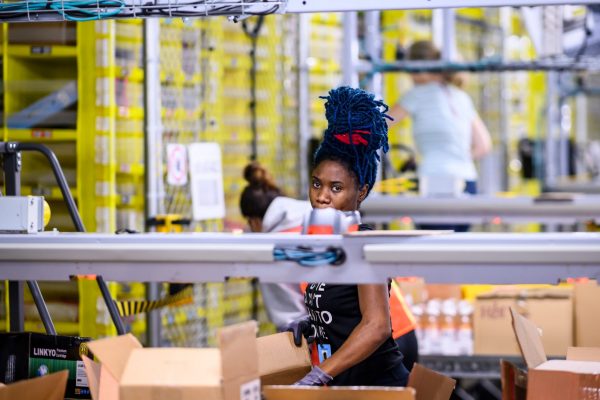Is there a meaningful distinction between Jack Phillips, “an expert baker and devout Christian,” as Justice Anthony M. Kennedy described him, and the company he owns, Masterpiece Cakeshop, a limited-liability company? The Supreme Court’s 7–2 ruling in Masterpiece Cakeshop, Ltd. v. Colorado Civil Rights Commission suggests not. The New York Times called the decision—which favored Phillips’s right to refuse service for religious reasons—“narrow” because it did not rule on the broader issue of discrimination against gay men and lesbians based on rights protected by the First Amendment. However, in terms of the relationship between capital and labor, the decision was anything but narrow. The Court’s majority opinion, written by Kennedy, is remarkable for its uncanny and unproblematic conflation of Phillips, the baker, and his business, the bakery. By insisting that the key issues in the case are Phillips’s artistic expression and his religious liberty, the Court was silent on the question of how a company can possess these rights. It did so by assuming not only that corporations are people, but that the cakes made by Masterpiece Cakeshop are produced by Phillips alone, when in fact we know that the bakery has other workers.
Justice Kennedy writes as though each cake made by the bakery personifies Phillips’s Christian values.
The Court saw fit to mention Phillips’s employees only once, in a remarkable sentence written by Clarence Thomas (joined by Neil Gorsuch) concurring with the judgement of the majority but making much broader claims about the rights of businesses to handpick their customers. Seeking to show both that Phillips is a sincere Christian and that his bakery reflects Christian values, Thomas wrote, “He is not open on Sunday, he pays his employees a higher-than-average wage, and he loans them money in times of need.” The last two clauses of the sentence are meant to demonstrate that Phillips is a good and generous employer, although one might wonder why well-compensated employees would need loans from their boss in order to make ends meet. But the first part of the sentence is particularly jarring. Presumably, Thomas meant to suggest that Phillips did not open his business on Sunday. But Thomas literally wrote instead that Phillips himself “is not open on Sunday.” Since it is impossible for a person to close or be open on Sunday or any other day of the week, Thomas here marked the extent to which the Court identified Phillips with the bakery.
The significance of this sentence is enormous and not just because, for Thomas and the other justices who sided with the majority, there is no appreciable difference between the baker and his company. (In this, the Court mimicked the language of Phillips himself, who in a 2014 video for the New York Times alternated between using “we” and “I” to describe the work of the bakery.) By extension, this means that the religious views and artistic contribution of the company’s workers are irrelevant. Phillips’s employees are merely props in Thomas’s morality tale—figures who receive the boss’s Christian charity but are otherwise unmentioned and invisible. The decision renders their status as workers for Phillips’s limited-liability company morally and legally immaterial.
The Court’s decision treats the workers and customers of Masterpiece Cakeshop as morally and legally immaterial.
So what of the artist’s helpers? Does Phillips, whom the Court tells us “owns and operates the shop,” make every cake (what the Court calls “his cakes”) alone, with no assistance from his staff? Presumably even if they do not mix the ingredients or come up with the recipes, they assist the baker-artist by cleaning pots and pans, handling the cash register, or performing other labor of value to the owner. The Court does not reckon with this division of labor, assuming that the cakes are the sole product of Phillips’s labor and artistry alone. Not only did the Court not bother to note the number of employees (as it did in a 2014 case involving another family-owned “Christian business,” Burwell v. Hobby Lobby Stores) or their roles, it also took no account of their views or religious principles. What if one or more of them believe strongly that the bakery should have provided a wedding cake for David Mullin and Charlie Craig, the same-sex couple who came into the store to ask for one, setting off the legal case in 2012?
While the Masterpiece Cakeshop employees are ciphers, never to be mentioned again in the Court’s deliberations, Thomas finds precedent for Phillips’s religious liberty in the case of an employee at a different workplace, a steel mill. Referring to Thomas v. Review Board of the Indiana Employment Security Division (1981), Thomas emphasizes the rights of a steel worker, a “faithful Jehovah’s Witness,” to refuse “to work on a fabrication line producing tank turrets” because the tanks might be used for war. The Court, according to Thomas, recognized that only the worker himself could “define the nature of his religious commitments.” By extension, Thomas argues that such latitude should be granted to Phillips. The fact that Phillips is a business owner, not a worker, goes unmentioned. Nor does Thomas, or the rest of the Court, seek to determine whether Phillips’s actions were consistent with the “religious commitments” of the bakery employees. In the Supreme Court’s narrative, then, Phillips not only owns and embodies the bakery (“He is not open on Sunday”), but also deserves the constitutional rights previously granted to employees of a steel mill, though his workers apparently do not.
Only Gorsuch signed on to Thomas’s expansive ruling about the rights of businesses to sell to whom they please. Yet the same slippage between Phillips and his cake shop run through all fifty-nine pages of the Court’s opinions, including the concurrence by the liberal Justice Elena Kagan, joined by Stephen G. Breyer. Even the dissent by Justice Ruth Bader Ginsburg (joined by Sonia Sotomayor) uses the language of “bakers” and “bakeries” interchangeably. This suggests success in the long efforts of conservatives and business lobbyists to efface the manifest differences among corporations, small businesses, and entrepreneurial individuals. Rather than being constituted by employers and employees, this vision of firms as aggregates (or embodiments) of individuals doubly effaces class, first by denying the existence of workers and then by assigning to businessmen such as Phillips the rights of otherwise invisible workers.
For much of the last century, the rights of workers, consumers, and businesses were relatively equal. The Masterpiece Cakeshop ruling upholds the neoliberal dominance of the firm.
In the same stroke that the Court effaced Phillips’s workers, it also stinted consumers. Writing for the Court, Kennedy viewed “the customer’s right to goods and services,” not as the essence of U.S. free enterprise, but as a potential threat to Phillip’s right to “personal expression.” From the perspective of the Court, the rights of producers not only trump those of consumers, but should be understood, not as corporate prerogatives, but as reflections of the artistic and religious temperament of one person—what the Court called “the deeply held beliefs” of the business owner. Of course, this is not new to the Roberts court: this way of treating businesses as though they were individuals capable of possessing deeply-held beliefs has already been enshrined by previous Court rulings, notably 2014’s Burwell v. Hobby Lobby Stores and, after a different fashion, 2010’s Citizens United v. Federal Election Commission.
The Masterpiece Bakeshop is a small business, but it is also a limited-liability company, a distinct entity, legally separate from its owners. Yet the Court’s decision, with its focus on Phillips, treats the cakes made by the bakery as though each one personifies Phillips’s Christian values. Leaving aside fundamental issues of gay rights and freedom of expression in order to build a strong majority, the justices collaterally ratified a radical view of corporate personhood. They did so by leaning on language consistent with the broader conservative view of the business firm, small or large, as a victimized person, deserving of individual rights and protections that no longer are granted to actual workers. Viewing the desires of consumers not as the engine of the economy, but as a potential constraint upon the autonomy and selfhood of the business owner, the Court drew upon a conservative history of defining free enterprise as freedom for sellers and manufacturers rather than liberty for customers.
For much of the twentieth century, especially during the New Deal period, a recognition of the competing and relatively equal rights and responsibilities of workers, consumers, and businesses characterized the U.S. political landscape. The Court’s Masterpiece Cakeshop ruling upholds the neoliberal dominance of the firm. By ignoring workers and describing consumers as pests who might force a business to violate its ethical sensibilities, Kennedy and his colleagues have sanctioned a worldview, all the more insidious because implicit, that treats the firm as a person. And in personalizing corporations, the Court has accorded to businesses the power that it has denied to workers and consumers.








